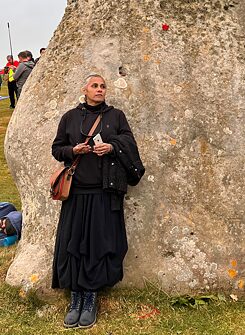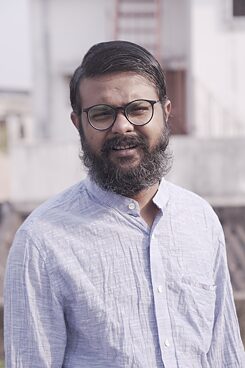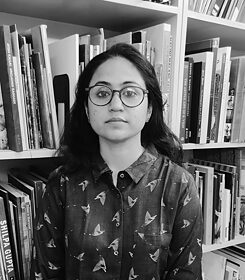With Sharmila Samant & Anupam Roy | Moderated by Sneha Ragavan
Where do art, ecology and social practice meet, and can they speak to contemporary political issues?
This conversation delves into two distinct artistic and socially engaged practices, where
Sharmila Samant and
Anupam Roy will talk about a few of their projects in relation to conditions of ecology, material culture, organising, and networks of resistance.
 © Sharmila Samant
Sharmila Samant
© Sharmila Samant
Sharmila Samant is a visual artist from Bombay, India. She works with a variety of mediums and forms such as installations, performance, and photography. Globalization, identity and consumer culture are issues central to her works. Samant has worked with activist groups and communities engaging in both collaborative and participatory art projects expressing her deep sensitivity towards suppressed and marginalized voices. She is the co-founder of a Mumbai- based collective called the Open Circle, which aimed to create a platform for meaningful dialogue among artists on an intercultural level and sought to address and engage with contemporary socio-political issues via an integration of theory and practice. Negotiating in both private and public spheres, Samant has engaged in collaborative and participatory art projects with various communities while exploring ideas of exchange, accessibility and authorship.
 © Anupam Roy
Anupam Roy
© Anupam Roy
Anupam Roy is a visual artist, and an Assistant Professor at the Department of Art, Media and Performance, Shiv Nadar University, SNIOE, Greater Noida since December 2022. Anupam considers himself as a “propagandist”, whose objective is not to propagate any preconceived ideology as it is conventionally understood, but the propagation of truths that evolves from people’s movements in India and elsewhere. According to him, this position is an urgent political and ethical task, as the world in general and India, in particular, are taken over by authoritarian and populist forces. His activity in the editorial team of the Locust Review, a print cultural journal published in North America, and a member of panjeri artists' union based in Bengal, helps him to self-reflectively approach his artistic practice and sociological location, creating a space for more discursive and collective engagements questioning the presuppositions of contemporary art and politics.
 © Sneha Ragavan
Sneha Ragavan
© Sneha Ragavan
Sneha Ragavan is Senior Researcher and Head of Asia Art Archive in India (AAA in I), a New Delhi-based independent arts organisation established in 2013, and an overseas hub of Asia Art Archive (AAA) in Hong Kong. AAA in India’s goal is to build resources on the region’s dynamic contemporary art scene by digitising artist and scholarly archives, developing research projects, and organising programmes. Together with colleagues, Ragavan is responsible for building archival collections from South Asia, administering artistic and research grants, creating online bibliographies and publications, facilitating institutional collaborations, and organising workshops and seminars on art history and writing in the region.
Zurück